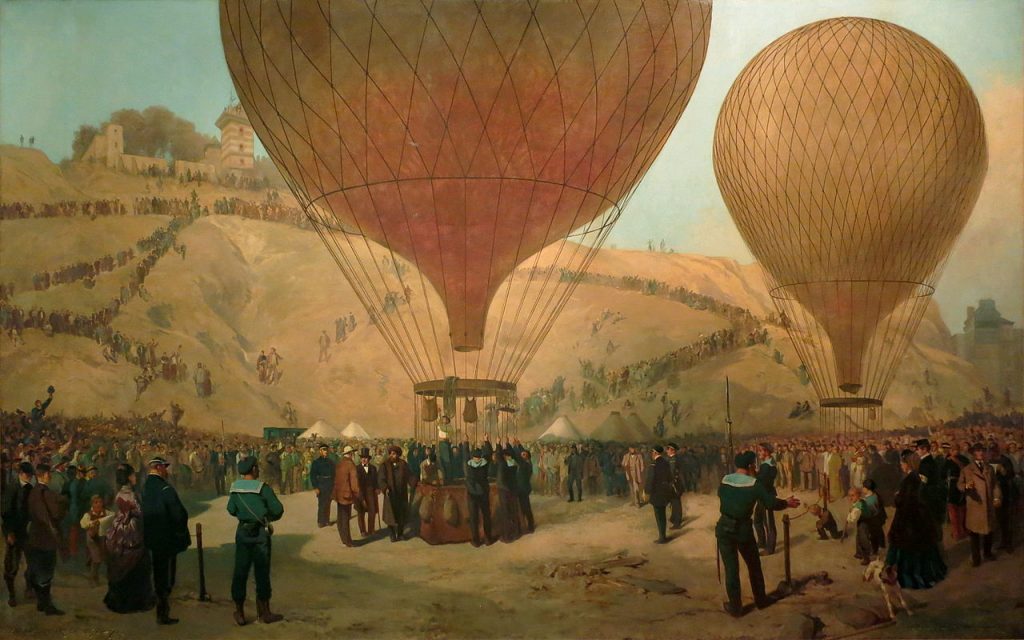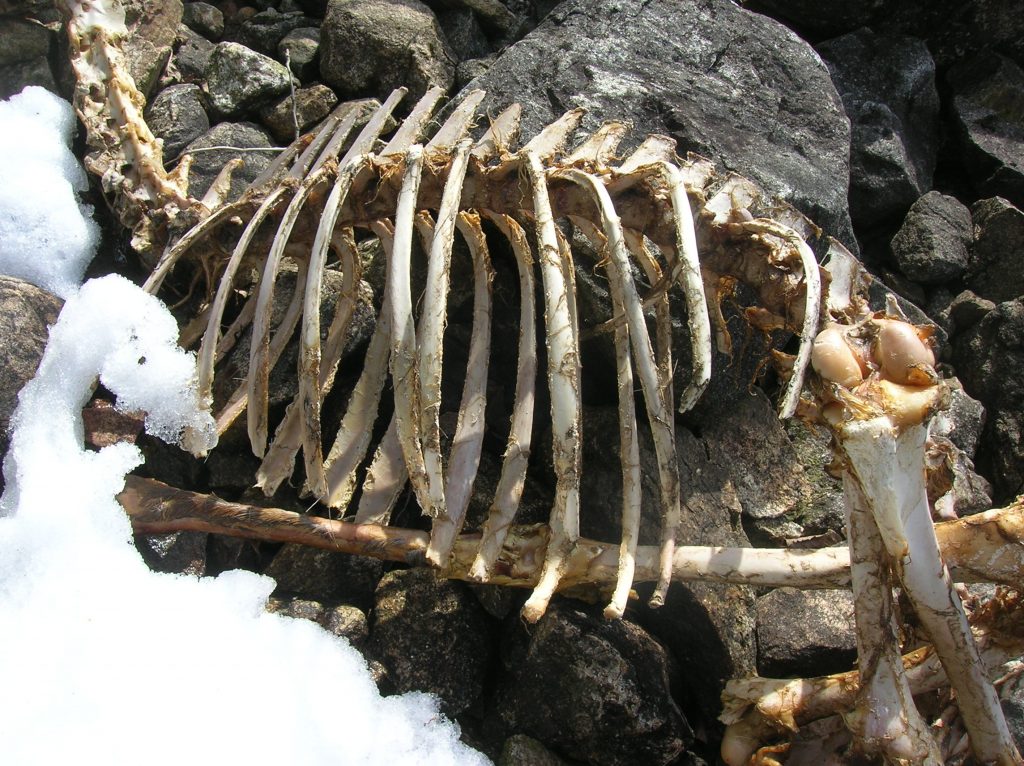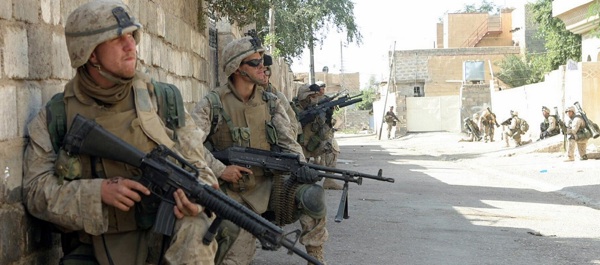“Madame L. Describes the Siege of Paris,” by Beth Ann Fennelly, appeared in the Spring 1997 issue of MQR.
*
You say that you could never eat a snake?
Had you been here, mademoiselle, in seventy one
this zoo would seem the freshest of buffets.
We too would have denied it of ourselves
but war is turpentine that strips the gloss.
We built a wall to keep the Prussians out
and barricaded Haussmann’s boulevards.
We forged new guns, drilled soldiers for attack,
then waited for the shells. They never hit.
Too late we learned they meant to starve us out.
It seemed almost a joke those first few days,
our handsome soldiers yawning with ennui.
When Bismarck sneered “The Paris bourgeoisie
will break after a day without eclairs,”
we laughed. Then had a day without eclairs.
The jokes, and children, thinned. The markets stalled—
we lost our fruit. We lost the beef and eggs.
Stale bread and unripe camembert were hawked
for sums—Mon Dieu!—that tripled overnight.
The first milk-hungry babies made their moans.
Flaubert bought braces, his first pair in years—
his belly couldn’t hold his trousers up.
We thought it’d gotten bad. Then it got worse.
The ville des Lumières went out—no light!
No oil for lamps! No coal to feed the stove!
November, and too cold to sit inside.
The poor huddled along Champs Elysées
mobbed kiosks, tore up cherry trees for wood.
The staple cafe diet, God and art,
was jettisoned—they talked only of food.
The men got drunk and drunker—we had wine
and mustard in abundance all those months.
Mustard and wine, mustard and wine, wine, wine.
Le Journal left off printing world affairs,
gave recipes for cooking rotten peas.
Outside the barricade the Prussians drank
French wine, slept in French beds, and nibbled brie
from lips of well-fed maidens, also French.
Inside, the city withered, locust-stripped.
I was young like you and had a man,
an officer, but stationed in Angers.
The tracks were cut. Although I dreamt of him
and how he’d feed me beurre et sucre crepes,
the weeks grew long. Soon I just dreamt of crepes.
The plump girl he had loved discovered ribs
and collarbones and hips under her dress—
each day I molted memories like a snake.
There was a boy named Jacques who hunted crows
inside the Tuilleries—l dug for root
of dahlia, and we would picnic there.
Sometimes he put his hands inside my blouse,
a different kind of hunger. Afterwards
he’d tell how he would feed me if he could
madeleines and berries dipped in cream,
gorging me with words till I was full.
No help came from abroad. Always no news.
Shipwrecked, we tied our pleas to pigeons’ legs
and ate the olive branches they returned.
We sent hot air balloons up from Montmartre
that blew into the Prussians’ chubby hands,
our Grand Sortie detailed for them to squelch.
It seemed we dreamt the world up long ago.
The hundredth day of siege: I queued for bread
while baby coffins circled Père Lachaise
like white ants choosing their last picnic spot.
A claustrophobic humor reigned in the streets.
We all were single-minded: food; so speech
became superfluous, the same ideas
in every house. The cats, suspicious, felt
in stroking hands the butchers’ greedy thumbs
appraising embonpoint. The dogs were dumb.
Meows and barks soon came from butchers’ carts.
I ate a slice of Siamese at Maude’s
that tasted just like chicken with her sauce;
the meatballs made of mice caused Maude to toast:
“To enemies made friends in cooking pots!”
Victor, my dog, was old; though it was triste
to fatten him for Christmas—what a roast!
A good dog, Victor, till the very end.
With Paris circumscribed, why keep a horse?
My father used his cane to beat the mobs
who tried to steal his mare, but acquiesced
to mother’s frank “She’s starving; why should we?”
The butcher stayed for filetde cheval
and courted me with eggs. The town dehorsed.
The soldiers used their strategy on rats;
they baited lines with wax and fished in sewers.
Then we ran out of rats. The city paused—
no howl, no cheep, no whinny in the streets—
and panicked. We turned upon the zoo inside
our zoo. Trumpetings and ape-cries from the ark:
the hippopotamus, the kangaroo,
wapiti, bear, and wolf—all mustard-doomed.
We killed them two by two. We cheered the boys
who drove the weeping zoo keeper away
and broke the locks made strong to keep us safe.
On fire, we roasted camel on a spit,
danced palm to bloody palm. The drinking troughs
were filled with wine. Two elephants, the pride
of town, Castor and Pollux—their trunks were sliced
over a barrel for blood. My torch revealed
two twin girls eating monkey from their hands,
a severed gazelle head atop a man’s,
some boys working a bar loose for a skewer
of koalas. While at the lion’s cage
I felt a hand slip underneath my skirt.
Beard on my neck. Feathers and bones
were all we left to greet the stricken sun.
I threw that dress away, it was so stained.
Later that week Thiers proclaimed defeat,
ceded Alsace-Lorraine, our francs, our pride.
The walls came down and Paris could reworld.
The Brits sent mutton, pies, and currant jam.
And things returned to normal. Shelves restocked.
The butcher shop on Fauborg St. Germain
took down its rhino horns. And gardens grew.
Resuming lives, we fought amongst ourselves
a civil war—well, who would govern now?
Who pay the money owed? Who seek revenge?
We were reminded who was rich, who poor,
and so if the poor starved they could be blamed.
Well that was years ago. Since then I’ve seen
more war—called “Great”—if what they say is true,
we’ll see another here before too long.
I’ve stockpiled tins of flour, sugar, grain.
I eat well always now, though it seems bland.
Maybe because I’m old. But my tongue holds
the taste of bear passed from a stranger’s mouth.
So me, I settled down, bought “Victor Deux.”
I plumped up, took a husband and his cares.
My life grew dense: I bore him seven sons.
The four that live prepare themselves to fight
the grandsons of the ones my husband fought.
Jean—that was his name—is gone. I spend
my days on this bench in this zoo. I like
to watch the animals and think of things
and people I have known. It’s strange how fresh
the siege is in my mind, as if my life’s composed
of those eight months. I think we keep ourselves
so tightly wrapped we never see our spools.
We saw them, clear as skeletons, that time.
What’s wrong? What’s right? To live was right. To know
that you could take the heart and eat it raw.
*
Image: Didier, Jules and Guiaud, Jacques. “The Departure of Leon Michel Gambetta.” 1870. Oil on canvas. Musee de la Ville de Paris, Paris.



